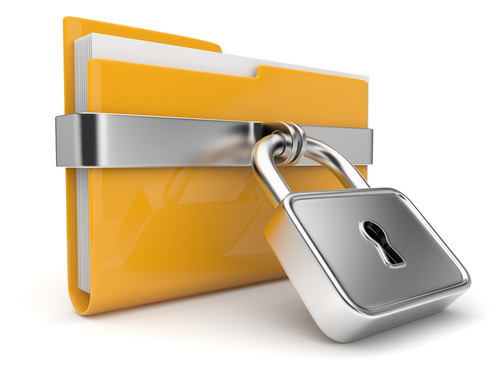Whatever line of business you are in, or however large or small your company is, security should be a top priority for you. There are huge security issues to contend with both online and off, and the only way to approach them is by being prepared and having a robust outlook. But where do you start in this often complicated minefield?
In this guide, we’re going to take a look at the key security issues that all businesses face. We’ll also point you in the direction of the right kind of help because however seriously you take it, there will always be a professional that can do a more thorough job.
Don’t think that just because you are a one-man band or a small company that these issues won’t affect you. Thieves and wrongdoers will target anyone that they spot a weakness in, and it might only be a matter of time before they catch up with you. Here is everything you need to watch out for.

Your Data is Valuable
Whether you are an online or offline business, or a combination of both, you will have a lot of valuable data stored. Customer details, supplier bank accounts and even your own personal information are all very useful to criminals. It is essential that you have a robust system in place that secures every last piece of your data for your own and your contacts’ safety.
To begin with, think about anti-virus and malware software to protect yourself from online hackers. Many of them will fish for a response from you, and the simple act of clicking open a link could spell trouble. Nasty software could infect your system and even leave control of your website and network in the hands of your attackers. Antivirus and antimalware software are your front lines of primary defence – but you must also remember to keep everything updated.
Also, if you run any kind of network, be aware that it gives hackers more entry points. To prevent unauthorized access, you should look into a full IT security package. There are plenty available on the market for all different kinds of businesses, so choose one that fits your needs. Bear in mind that as you grow you may need to alter your package, or find a new support system to handle your expansion.
Documents should be Secure
Just as your data is valuable, so are your physical documents. In fact, as so much emphasis is placed on online security that many businesses are guilty of taking their eyes off the ball when it comes to papers, receipts and physical files. And that makes them very tempting for potential thieves.
Think about keeping your sensitive documents in a secure environment with a well locked door. You could even invest in a safe, and some businesses may benefit from looking into wire cages. Particularly those from the legal and medical professions where documents can be highly sensitive.
You should also limit the amount of documents that you keep by investing in a good shredder. Anything that you dispose of could be used against you or one of your customers. It isn’t unheard of for nefarious types to root around in office bins to see if they can find anything useful. If you’re shredding your documents and disposing of them correctly, you will reduce much of that risk.
Your Staff Need to be Trained
Your staff need critical security issues drilled into them to prevent problems down the line. It doesn’t matter if they work online only or in the real world, employees can often be the cause of many security failures. Let’s look at online first.
Give your staff the right training about online security and they will be more aware of how they work and the effect it can have. Although most employees will have no harmful intentions, mistakes do happen – but if they are drilled in the right processes they will be less likely. Try slimming down the access they have to your network and only let them use what they need to. You can increase that access as they rise through the ranks. You should also consider monitoring their work with software so that you can identify any potential security problems. Ideally, the only person in your company that has access to your server information is you and an IT head. This will limit the potential damage that could be caused.
Offline, there are many problems that businesses face – and many of them occur by accident. It’s easy for a member of staff to forget to close a window after a hot day at work, for example. With this in mind, it’s a good idea to make sure you have an end-of-day security check before you lock up and leave. All it takes is for a window to be slightly ajar, and you could return the next day to an empty office, stripped of all your expensive equipment. Regular training will also help drum in the message that security is everyone’s responsibility.
Equipment
Large or small, you business ( thebestfactors.com ) has equipment that you need to survive. Without it, you won’t be able to work, and you run the risk of impacting your bottom line. Unfortunately, anything used for business is a valuable commodity on the black market. And, if you don’t have the right protection in place, you could be targeted by thieves.
For example, if you are a tradesperson, where do you keep your tools? Are they locked away securely inside your home or workshop, or do you leave them in your car overnight? If it’s the latter then not only do you run the risk of somebody stealing the tools of your trade, but you could also be targeted by car thieves. Limiting your risk is the only way you can reduce your chances of having your means of making a living being taken from you.
You should also think about the equipment you use in your workspace. CCTV cameras are an obvious idea that can help put potential thieves off their stride. Most criminals prefer a comfortable life, and if there are too many obstacles in their way, they will look elsewhere. CCTV is a great deterrent – as are alarm systems.
As you can see, there is a lot to think about when it comes to security, and hopefully we have managed to highlight some of the key areas. Take a look around our blog for some more valuable business tips that will protect your bottom line.















